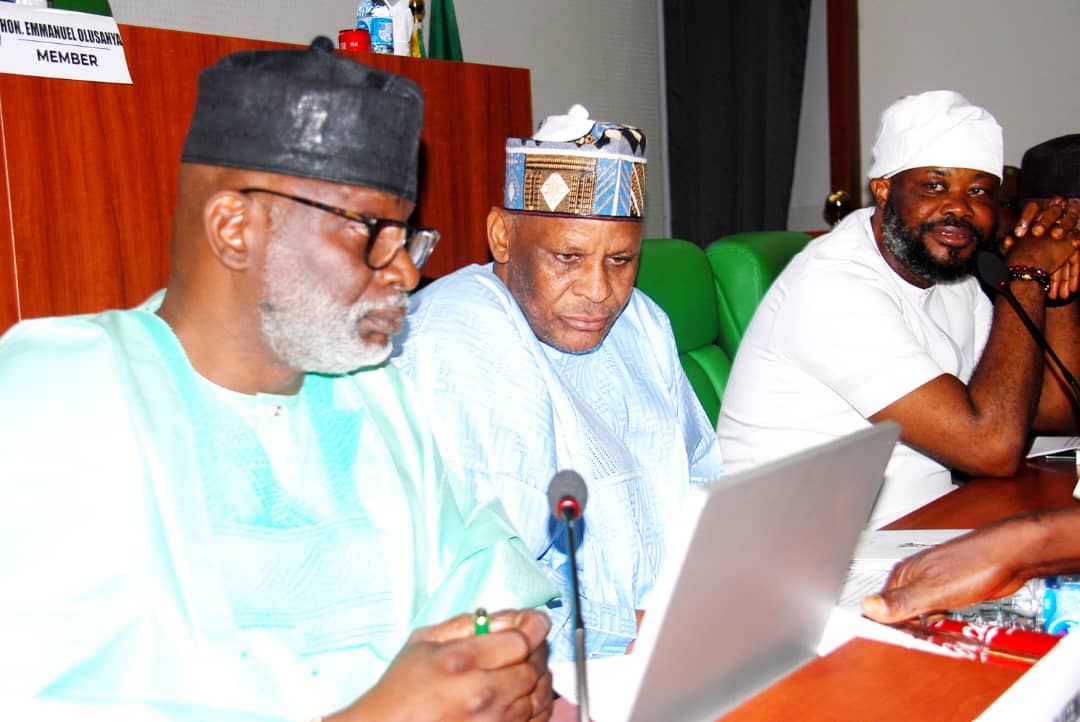Vulnerabilities associated with cryptocurrency operations cannot be overlooked says Speaker Abbas as the House sets the stage to review economic, regulatory, and security implications of cryptocurrency adoption and POS operations in Nigeria

The Speaker of the House of Representatives, Rep. Abbas Tajudeen, has inaugurated an ad hoc committee to examine the economic, regulatory, and security implications of cryptocurrency adoption and Point-of-Sale (POS) operations in Nigeria.
Speaking at the inauguration on Monday in Abuja, Speaker Tajudeen said the move became necessary amid rising concerns over fraud, cybercrime, and consumer exploitation in the digital finance ecosystem.
Tajudeen noted that the Nigerian economy has demonstrated remarkable resilience over the years, often recovering from recessions and posting impressive growth in its non-oil sectors.
According to him, “it is therefore safe to conclude that the cryptocurrency trade will thrive in such a robust economic environment.”
He, however, cautioned that the vulnerabilities associated with cryptocurrency operations cannot be overlooked.
The speaker expressed concern about the sector’s potential use for terrorism financing and money laundering due to its opaque nature, weak regulatory framework, unclear governance structure, and lack of accountability.
“It is because of this absence of clear rules, coupled with the volatility and complexity of the technology, that the House of Representatives found it imperative to establish regulations and consumer protection measures that will regulate the activities of Virtual Assets Service Providers, including cryptocurrencies and crypto assets,” Tajudeen said.
“This ad-hoc committee is therefore absolutely necessary. Its main job is to undertake public hearings to collate relevant information from stakeholders that will guide the House in developing legislation for a regulatory framework for the adoption of the currency in our economy.
“Its work will also guide the House in its oversight functions as they concern the use of digital currency in Nigeria,” he added.
Tajudeen reaffirmed the commitment of the 10th House to safeguarding the country and its citizens from developments that could undermine the economic reforms being championed by President Bola Tinubu’s administration.
He urged members of the committee to be patriotic and let the best interests of the nation guide their work.
In his remarks, Chairman of the Committee, Rep. Olufemi Bamisile (APC–Ekiti), described the assignment as one of national importance aimed at balancing financial innovation with national security.
“We have been entrusted with a task of national significance: to review the economic, regulatory, and security implications of cryptocurrency adoption and Point-of-Sale operations in Nigeria,” Bamisile said.
“Across the world, financial systems are being reshaped by technology. In Nigeria, cryptocurrency and POS operations have grown rapidly, creating new opportunities for commerce, financial inclusion, and innovation.
“But alongside these opportunities lie serious risks — cybercrime, fraud, money laundering, terrorism financing, and regulatory uncertainty.”
Bamisile said the committee’s work would focus on crafting a legislative and regulatory framework that encourages innovation while protecting citizens and preserving the integrity of the nation’s financial system.
He disclosed that the committee will collaborate with key regulatory and security agencies, including the Central Bank of Nigeria (CBN), Securities and Exchange Commission (SEC), Nigeria Deposit Insurance Corporation (NDIC), Nigerian Financial Intelligence Unit (NFIU), Economic and Financial Crimes Commission (EFCC), Independent Corrupt Practices and Other Related Offences Commission (ICPC), and the Nigeria Police Force.
According to him, the committee will adopt a consultative and evidence-based approach, engaging regulators, banks, fintech operators, civil society, and security stakeholders through public hearings to gather diverse perspectives.

